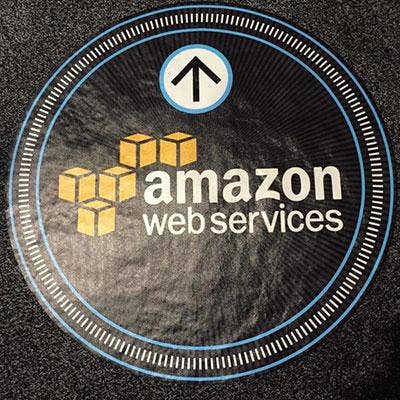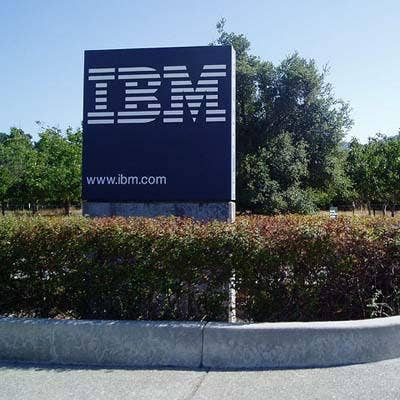Cloud Wars: Top 4 Cloud Infrastructure Services Market Vendors

Cloud Infrastructure Services Market Snapshot— Q2 2016
The Q2 earnings are in and Synergy Research's latest tabulation of the cloud services horse race shows four leaders galloping at a breakneck pace, even as their positions in the field remain unchanged.
Amazon, Microsoft, IBM and Google control more than half of the world's market for cloud infrastructure services, and they're growing much faster than smaller competitors.
Together, those four companies expanded their Infrastructure-as-a-Service, Platform-as-a-Service and hosted private cloud businesses by 68 percent in Q2, with Microsoft and Google each posting triple-digit growth.
The next 20 providers saw average growth of 41 percent—respectable in most industries, but short of the overall market's 51 percent expansion. And even-smaller providers only grew by 27 percent—anemic by the industry's standards.
John Dinsdale, chief analyst at Synergy Research Group, said the reason the four leaders can differentiate themselves from all others is "global presence, marketing muscle, ability to fund huge investments in hyper-scale data centers and, in most cases, a determination to succeed in the market."

AWS
AWS occupies its own orbit as a cloud services provider—no other cloud is anywhere close to approaching Amazon's market share.
Despite massive investments from three of the world's most-powerful tech giants looking to derail Amazon's hegemony, AWS continues to dominate the competition by taking in about one-third of the world's cloud spend—still larger than those next three competitors combined.
Despite the tremendous scale at which it now operates, Amazon is still increasing share and growing faster than the overall market, though just barely with 53 percent year-over-year growth.
AWS still leads in all geographic regions and most market segments, according to Synergy.

Microsoft
After doubling its Azure cloud business in a year, Microsoft could still only claim a third of Amazon's revenue.
The world's largest software company now owns roughly 11 percent of the cloud market.
While 100 percent year-over-year growth would be the envy of almost any other provider, that number actually marks a slight deceleration in Azure's expansion rate over recent quarters.
Such a slowdown shouldn't be perceived as a sign of weakness in Microsoft's cloud business, Dinsdale said.
"At some stage the law of big numbers comes into play and you just cannot keep on growing at the same percentage rate," Dinsdale told CRN. "For a business of that size to be growing at 100 percent is impressive."

IBM
IBM remains tightly lodged in third-place thanks to the strength of its private and hybrid services segments. That product diversity keeps Big Blue firmly in command of 8 percent of the overall cloud infrastructure services market.
Growing last quarter at a pace of 57 percent, IBM slightly outperformed the market as a whole, but fell well short of the numbers posted by Microsoft, which is breaking away, and Google nipping at its heels.
IBM's BlueMix PaaS and Watson services performed well in the quarter, Dinsdale told CRN, but the SoftLayer public cloud is fighting an uphill battle.
IBM "is having a hard time making a big impression in the public IaaS side of the market, which is really a game of huge scale that needs to be backed up by effective marketing and a strong brand name," Dinsdale told CRN.
"That’s the biggest piece of the market and AWS and Microsoft have a big lead, with Google also now pushing hard."

Google's cloud business has been supercharged over the last year by a new executive, VMware co-founder Diane Greene, and some big deals.
The Mountain View, Calif., Internet giant's cloud expansion has been accelerating ever since, with Q2 showing a phenomenal 162 percent surge year-over-year—finally outpacing Microsoft in percentage growth (something easier to do when starting with a smaller base).
With that said, Google App Engine and Compute Engine, the PaaS and IaaS offerings, still aren't at even half of Azure's market share, or a sixth of Amazon's.
"What Google has in its favor is a huge underlying data center infrastructure and some cool technology," Dinsdale said. "Where I think it’s been missing out is in corporate focus and a specific drive with its cloud business."
Google doesn't offer the range of services that AWS and Microsoft do, and it can't match IBM, Microsoft or AWS in terms of credibility and perceived strength in the enterprise market, he said.
But "there is no doubt that Google is becoming a tougher competitor, especially in the IaaS side of the market," Dinsdale said.

The "One-Offs" Of The Top 20
Synergy Research doesn't publically break out market share for vendors trailing the four frontrunners, but Dinsdale spoke to CRN about some of the dynamics shaping the race downfield.
Two companies, Salesforce and Rackspace, the analyst described as "one-offs"—cloud infrastructure providers with unique scopes and focuses that can't easily be explained in the context of a larger overall group.
Salesforce remains in fifth place in the overall market, Dinsdale told CRN. While no current numbers were made available, at the end of last year, the CRM giant had 4 percent market share on the strength of its PaaS products.
Salesforce "cannot match the big four cloud providers, but it does continue to grow," Dinsdale said.
Rackspace, a public cloud pioneer, fell by the wayside in recent years after being unable to match the scale and investments of the hyper-scale providers. To compensate, the provider changed its focus to areas where it can compete strongly, "which is on the hosted cloud side of the market and, increasingly, as a partner to AWS and Microsoft," Dinsdale said.

The Rest Of The Top 20
Some interesting companies are chasing the cloud infrastructure services leaders, looking to break into the top 5.
Alibaba "is growing like crazy," Dinsdale said, but still makes most of its revenue in China. The e-commerce powerhouse is, however, expanding its cloud into other countries.
Oracle is also growing strong thanks to its traditional software strengths powering a healthy PaaS business, though the software giant's IaaS product "is in the slow lane."
A number of telcos are also chugging along, Dinsdale said, mostly in their home markets. Those include NTT, BT, Deutsche Telekom, China Telecom, AT&T, and Verizon.
And some traditional IT services providers are holding their positions in the top 20 by competing on the hosted private-cloud side of the market. Fujitsu and HPE are notable entrants in that category, Dinsdale told CRN.